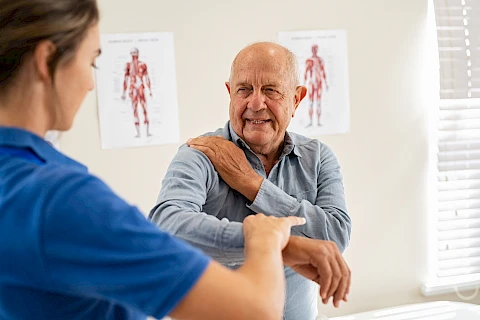
Chronic pain is a common issue among seniors, affecting their quality of life. Effective pain management is essential to improving their comfort and well-being. Caregivers can help manage this pain, helping seniors lead more fulfilling lives.
What Is Chronic Pain in Seniors?
Chronic pain in seniors often stems from conditions like arthritis, neuropathy, and old injuries. This constant pain can interfere with daily activities and diminish their well-being. As a caregiver, it's important to recognize signs such as frequent complaining about pain, reduced mobility, or sudden mood changes. By staying alert to these symptoms, you can address issues before they become overwhelming.
Non-Medical Pain Management Techniques
There are several non-medical approaches you can adopt to help manage your senior's pain effectively. Here are some things to consider:
Physical Activities and Exercises
Engaging in regular gentle exercises can significantly alleviate pain. Walking, stretching, and swimming can help maintain mobility and reduce discomfort. These exercises boost circulation, reduce stiffness, and elevate mood. Start with short, daily walks, encourage light stretching in the morning, and consider swimming as a low-impact exercise option. You should always check with your senior loved one's doctor before starting any new exercises.
Relaxation and Stress-Reduction Techniques
Mental well-being is closely linked to physical health. Pain often feels worse when a person is stressed or anxious. Deep breathing, meditation, and yoga can considerably improve a senior's pain. Reducing stress can lower pain perception and improve their quality of life. Encourage them to spend a few minutes in quiet meditation or practice deep breathing exercises together each day.
Use of Heat and Cold Therapy
Heat and cold therapy are simple yet effective methods for managing pain without medication. Use heat pads for muscle stiffness and cold packs for swelling or acute pain. Always wrap heat pads or cold packs in a cloth to prevent skin damage and limit use to 20 minutes.
Working With Healthcare Providers
Regular check-ups and consultations with healthcare providers are vital in managing chronic pain effectively. Routine visits can help detect issues early and adjust pain management plans as needed. Be honest and specific about the senior's pain levels and daily challenges. This allows healthcare providers to tailor treatments effectively. Work with doctors to create a thorough plan that might include physical therapy, lifestyle changes, and, if necessary, medications. While medications can play a role, be aware of potential side effects and discuss any concerns with healthcare providers.
Supporting Seniors' Well-Being
Overall well-being plays a consequential role in managing pain. Ensure that seniors consume nutritious meals and stay hydrated, as this can influence their pain levels. You want to help them establish a regular sleep routine to make sure they are well-rested. See to it that their living space is safe, comfortable, and relaxing. You should encourage them to stay connected with friends and family to prevent feelings of isolation, which can exacerbate pain.
Senior Helpers Westminster Can Provide Care for Seniors Struggling With Chronic Pain
Managing chronic pain in seniors requires a blend of understanding, strategies, and consistent care. As a caregiver, you can play a pivotal role in improving their quality of life. From engaging in gentle exercises to working closely with healthcare providers, each step you take can make a significant impact. For personalized senior care services in Ellicott City, Westminster, Sykesville, and Taneytown, contact Senior Helpers Westminster today.